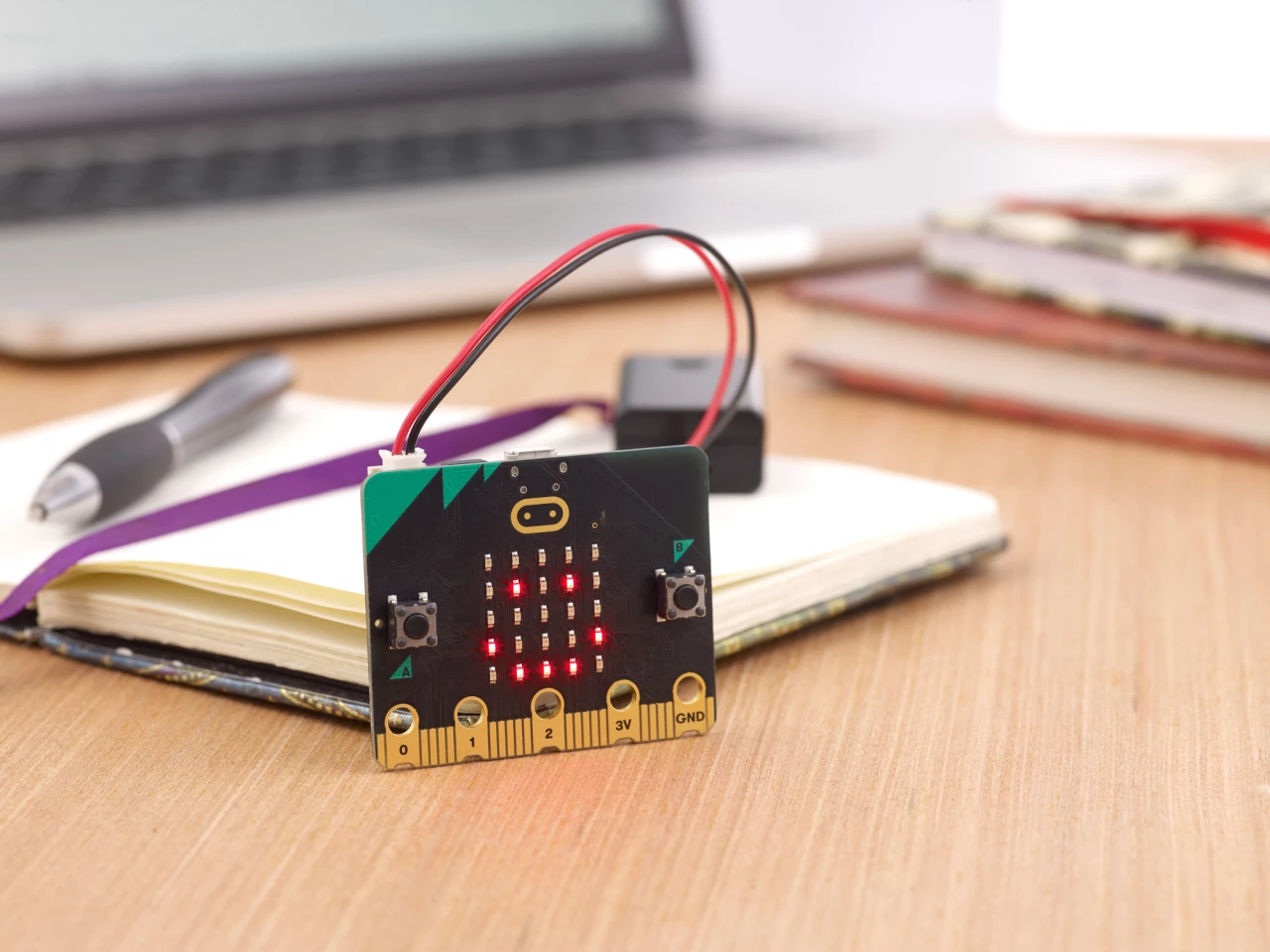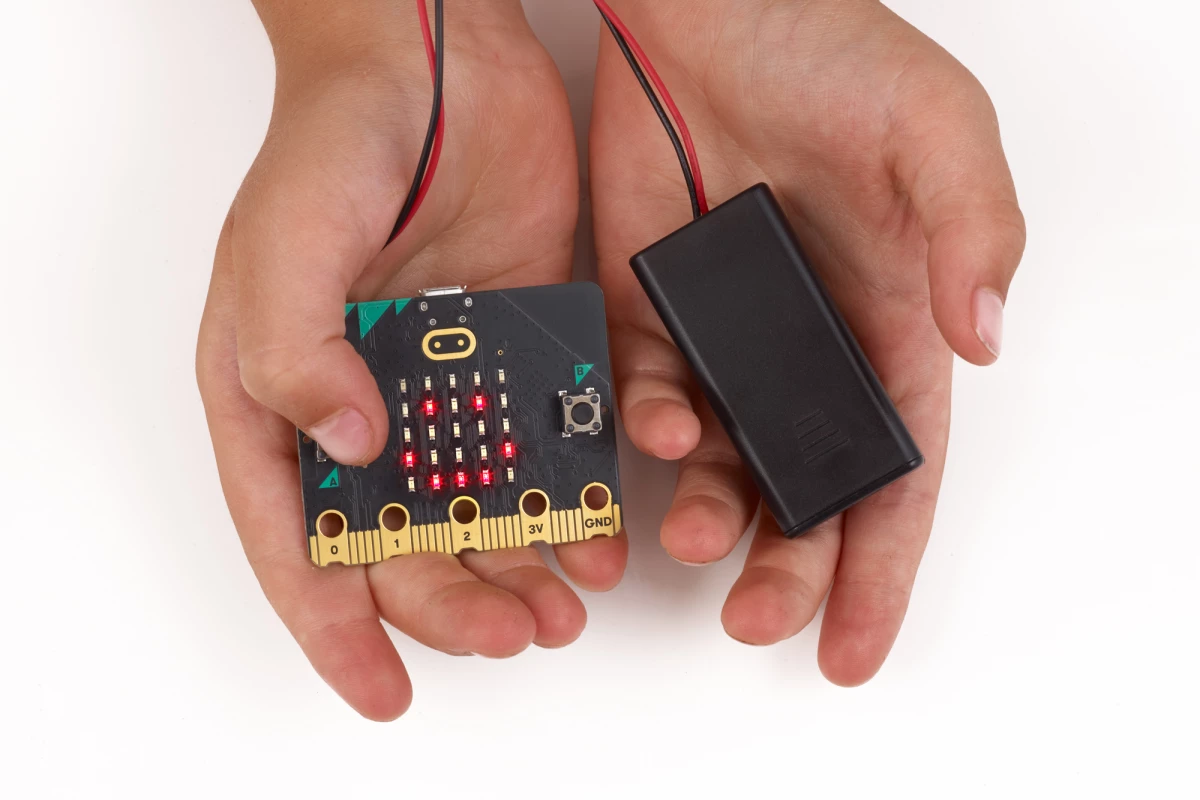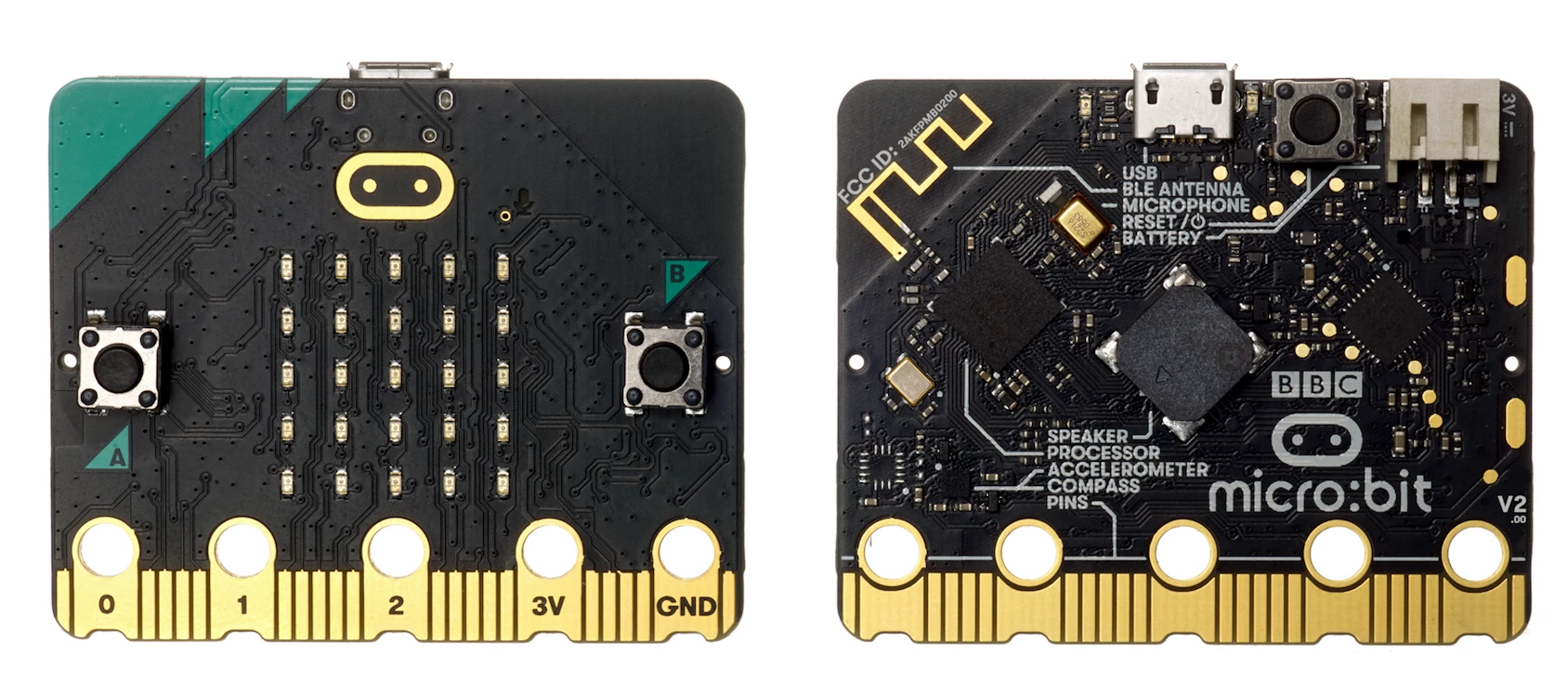Back in 2016, the BBC gave a million tiny computers to UK school kids for free as part of its Make It Digital project. The micro:bit boards were designed as learning tools to help get youngsters into coding, and now the tiny computer for tiny hands has been updated.
The Micro:bit Educational Foundation, a non-profit formed in late 2016 by the project's original founders, reports that there are currently over five million of the original mini computers in classrooms all over the world.
The updated unit has the same basic feature set as the original. Bluetooth 5.1 and a very simple small-packet broadcast radio interface are on board, there are two user button, a 5x5 LED display matrix, a combined accelerometer and magnetometer chip, light and temperature sensors, and an edge connector with 19 assignable GPIO pins.
Version 2 now comes with a speaker, microphone, capacitive touch sensor, and power save button too. It has also been treated to an improved microprocessor, more memory and storage, and it now runs at 64 MHz, compared to the original's 16 MHz. Power can be supplied over USB or by connecting an external 3-V battery.

The new unit will work with existing lessons, materials and code, but more features are due to be added during 2021, including artificial intelligence and machine learning.
"From the very beginning the BBC’s purpose has been to inform, educate and entertain – qualities which are all reflected in the micro:bit project," said Tim Davie, the BBC's Director General. "Since its launch through our Make it Digital campaign, it has helped transform digital skills and learning. I have no doubt the updated and upgraded micro:bit will drive further innovation and creativity, both in the UK and around the world."
The new micro:bit will be available from next month, with prices starting at £11.50 (about US$15). The video below has more.
Source: Micro:bit Educational Foundation






